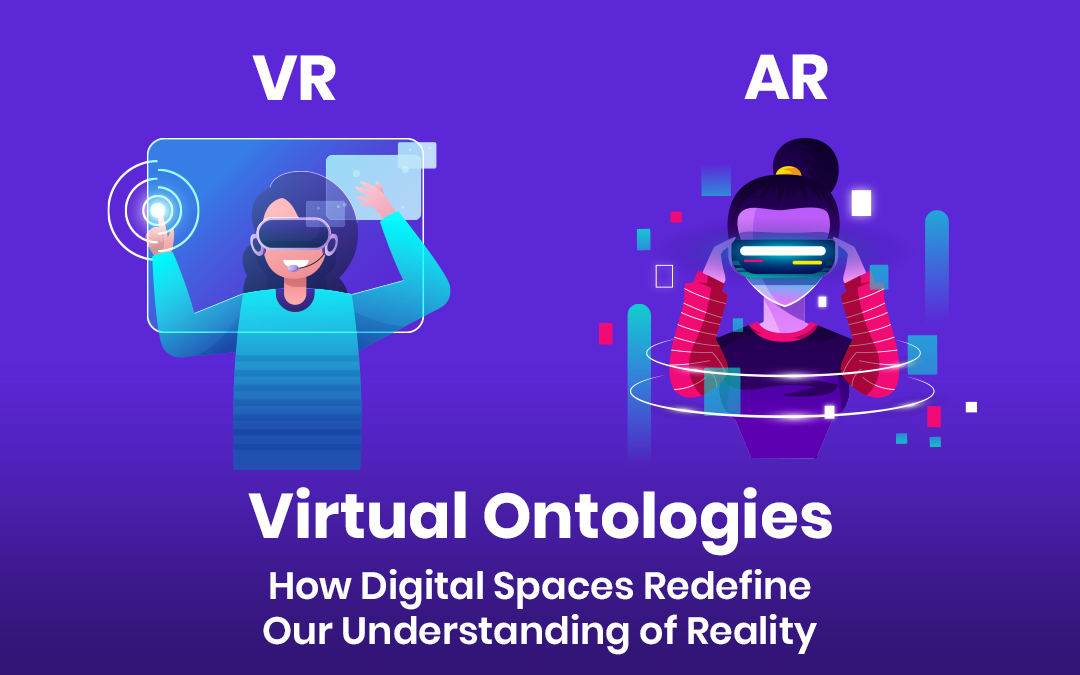
The evolution of technology has initiated transformative changes across various domains, giving rise to the concept of virtual ontologies. These digital constructs encompass the frameworks that define how individuals interact with, perceive, and understand virtual environments. As digital spaces proliferate, they challenge conventional notions of reality, prompting a reevaluation of what constitutes existence and interaction in a world increasingly shaped by technological advancements. This shift equally impacts individual experiences and collective understandings of space and presence.
Blurring Boundaries Between Realities
Understanding virtual ontologies necessitates an exploration of the relationship between digital environments and human experience. Traditional ontological frameworks have been grounded in physical interactions and tangible realities; however, the advent of augmented reality (AR) and virtual reality (VR) technologies has introduced immersive experiences that blur the boundaries between the physical and digital spheres. These innovations create unique landscapes where perceptions are informed by both virtual constructs and real-world contexts, rendering the distinction between what is considered real and what is virtual increasingly indistinct. This transformation raises essential questions about the nature of experience in a digitized world.
The Role of AR/VR Development Services
A critical aspect of this evolution is reflected in the increasing demand for AR/VR development services that facilitate the creation of immersive experiences that enable users to engage with digital environments in ways that feel authentic and impactful. Through the integration of advanced technologies such as 3D modeling and artificial intelligence, developers are crafting virtual spaces that simulate real-world interactions with remarkable fidelity. These digital environments open new avenues for social engagement, education and entertainment, building a sense of presence and participation that challenges traditional perceptions of reality. The implications of such advancements extend beyond entertainment, influencing education and professional training as well.
Identity and Community in Digital Spaces
The implications of virtual ontologies are not limited to interaction; they also profoundly affect the construction of identity and community. In virtual spaces, individuals have the opportunity to adopt various personas, interact with diverse groups, and explore different aspects of self. This fluidity enables the formation of communities based on shared interests rather than geographical proximity, thus reshaping social dynamics. As these communities flourish within digital environments, established frameworks for understanding social interaction and identity face reevaluation, leading to new paradigms of connection and belonging that transcend traditional boundaries.

Philosophical Implications of Virtual Experiences
The philosophical dimensions of virtual ontologies invite deeper inquiry into the nature of existence itself. As digital environments continue to evolve, significant questions arise regarding the authenticity of experiences and the intrinsic value of virtual interactions. Do these interactions lose significance because they occur in a digital space, or do they hold meaningful contributions to human experience? Such inquiries provoke discussions about the role of technology in shaping perceptions of reality and the importance of digital experiences in contemporary society. The exploration of these philosophical implications serves to deepen the understanding of how technology mediates human existence.
Future Directions in Virtual Ontologies
The intersection of virtual ontologies and everyday life remains a rich area for exploration. As technology continues to advance, the potential for creating richer and more engaging digital spaces expands significantly. This evolution presents challenges for individuals and society in adapting to new forms of interaction and understanding. The impact of virtual environments on cognition, behavior, and social norms necessitates ongoing examination, guaranteeing the benefits of these advancements are maximized while potential risks are effectively managed. Ultimately, this proactive approach is essential for constructing a balanced relationship between technology and human experience.
Share this post
Leave a comment
All comments are moderated. Spammy and bot submitted comments are deleted. Please submit the comments that are helpful to others, and we'll approve your comments. A comment that includes outbound link will only be approved if the content is relevant to the topic, and has some value to our readers.

Comments (0)
No comment